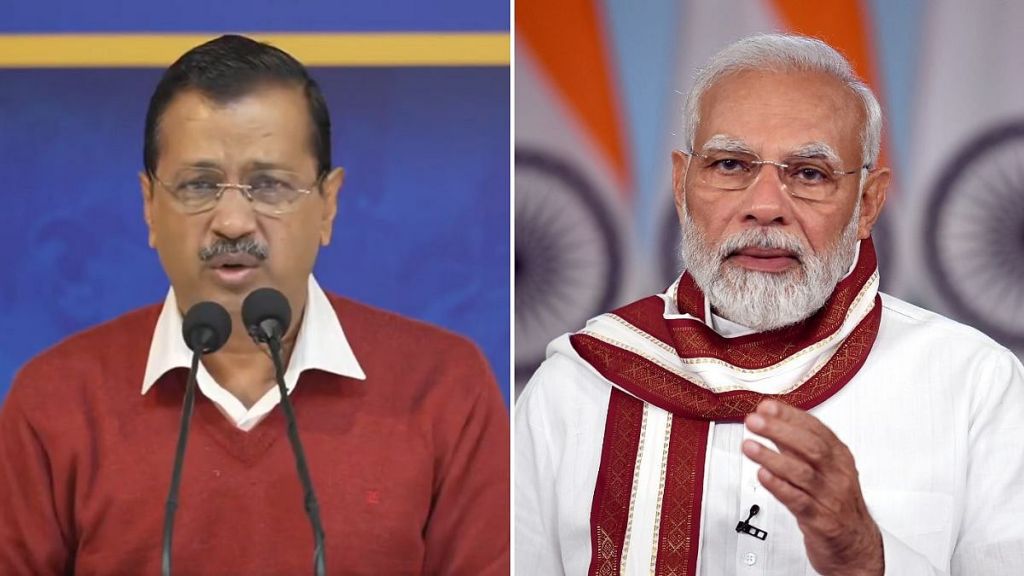
The million-dollar question on the minds of Delhiites as they cast their votes today is whether they want to continue with the old dispensation or usher in the BJP, which has not held power in this Union Territory for the past 23 years.
Over the last decade, Delhi voters have been content with the AAP at the helm while voting overwhelmingly for the Modi-led BJP in Lok Sabha elections.
However, the situation has shifted dramatically in the past month. The Centre announced the 8th Pay Commission, which promises a substantial salary hike for the large number of government employees residing in the capital. This was followed by the Budget announcement on February 1, offering major tax benefits for the middle class, a significant segment of Delhi’s electorate.
The middle class has been vocal in its criticism of the AAP over crumbling infrastructure, accumulating garbage piles, and deteriorating road conditions. Many believe AAP has focused on the poor and jhuggi dwellers while neglecting their needs. In contrast, the BJP has actively courted Resident Welfare Associations (RWAs), market associations, and traders—key elements of the vocal middle class—and has successfully garnered their support.
But these are not the only groups the saffron party has targeted. Delhi’s 20 percent Dalit vote bank, predominantly in jhuggi clusters, has been a core constituency for the AAP. Yet, the BJP has managed to make inroads among the jhuggi dwellers through extensive door-to-door campaigns.
The Prime Minister kicked off the BJP campaign in Delhi by inaugurating 1,675 newly constructed houses for jhuggi residents and ended it on February 3 with a promise to provide a pucca house for every jhuggi dweller.
Ironically, the BJP, once opposed to "revadis" (freebies), has dramatically changed its stance, promising to continue the free water and power subsidies initiated by AAP. Moreover, all three major contenders—AAP, Congress, and BJP—have offered a plethora of freebies in their bid to woo voters.
The potential shift of two core AAP constituencies—the Dalit vote and the middle-class voter—has left former Chief Minister Arvind Kejriwal anxious. He needs their support to clinch this crucial election and is leaving no stone unturned to keep them within his fold.
In the final stretch of the campaign, Kejriwal has reminded his voters that his administration's freebies have saved them at least Rs 25,000 per month. He claims that under his continued leadership, this figure could rise to Rs 35,000 monthly. He also warns that these benefits would cease if the BJP gains power.
The BJP's campaign has seen its share of highs and lows. Initially, they focused on the "Sheesh Mahal" and "Sharab Ghotala" scandals to underscore the AAP’s alleged corruption. However, when this failed to resonate with the public, they pivoted to environmental issues, highlighting how a government that once promised to bring Delhi "at par with London and Paris" has failed to clean the pollution-ridden Yamuna. Air pollution was another failure the BJP highlighted.
Kejriwal admitted his party's failure to clean up the Yamuna but remained largely silent on air pollution, while other AAP leaders blamed changing weather conditions and stubble burning for the annual escalation.
Delhiites are vocal about their choices. A Karol Bagh shopkeeper remarked, "There is a strong sense of incumbency against AAP. They worked hard in the first five years but seem to have lost the plot afterward." A Janakpuri teacher echoed this sentiment, questioning why Kejriwal did not address pollution issues earlier.
The city’s environmental crisis is undeniable, but critics have questioned why the Ministry of Environment and its minister, Bhupender Yadav, have not tackled this issue more aggressively. River activist Rajender Singh has argued that environmental issues need holistic solutions rather than political blame games.
Seven months ago, AAP’s morale was low. Kejriwal’s release from jail in May 2024 saw him make strategic moves, including resigning as Chief Minister and vacating his "Sheesh Mahal." With limited resources and many colleagues still incarcerated, he embarked on padyatras and loud campaigns, revitalizing the party significantly.
A significant challenge for Kejriwal is retaining the Muslim vote, which constitutes 13 percent of the population and has previously consolidated behind AAP despite Congress’s efforts.
Congress has struggled to split both Muslim and Dalit votes. The party, rich in leaders but poor in grassroots workers, is banking on former Chief Minister Sheila Dikshit's legacy to win 10 to 12 seats—a prospect that appears bleak given their delayed entry into the campaign.
Meanwhile, the RSS has conducted 50,000 drawing-room meetings across offices, malls, and educational institutions to rally support for the BJP. The propriety of holding such meetings in schools and colleges is questionable, but election frenzy has overshadowed such concerns.
Prof. Sanjay Kumar of the Centre for the Study of Developing Societies notes that 17 percent of voters remain undecided, a critical demographic that could sway the election either way.
Kejriwal once sought to create a viable, clean alternative to the entrenched political giants. Whether Delhi’s cosmopolitan citizens choose to endorse an overarching, dictatorial monolith on February 8 remains to be seen.
Rashme Sehgal is an author and an independent journalist